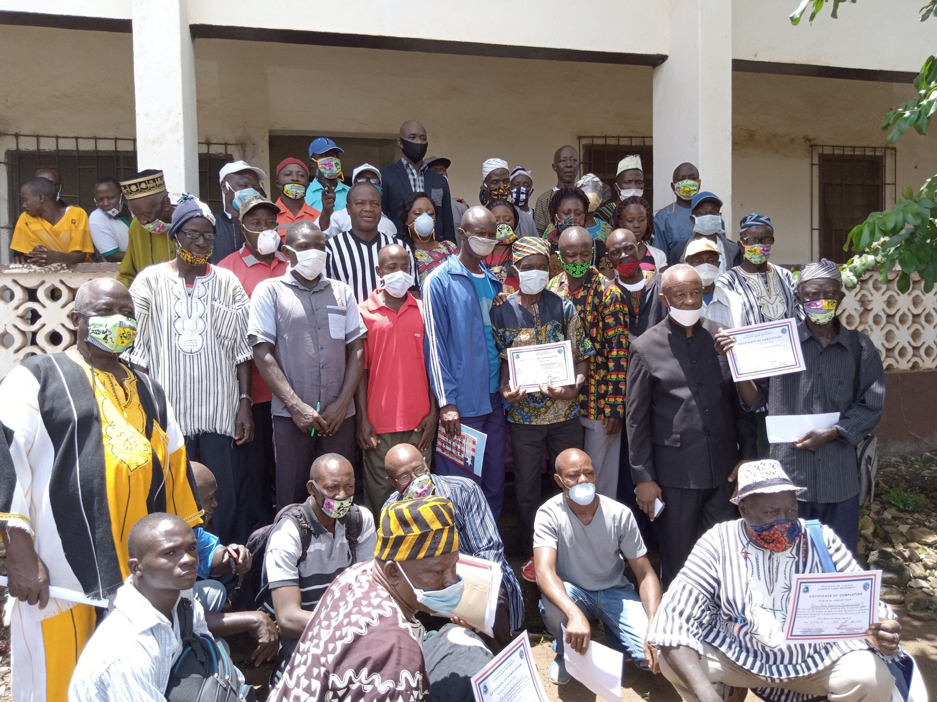Land Authority Grants 6 Communities Full Ownership of Ancestral Land in Lofa
The Liberia Land Authority has officially certified six communities in Foya, Lofa County as land-owning communities. This is a major milestone in the implementation of a ground-breaking Land Rights Act of 2018. The law recognizes local communities’ right to own their customary land and guarantees them full legal protection as private landowners.

The six communities—Upper and Lower Tengia, Upper and Lower Rankollie, and Upper and Lower Wuam—together occupy more than 55,000 hectares of land in the northern county on the borders with Guinea and Sierra Leone. The communities can now govern and manage their land collectively, according to their own by-laws administered by a representative local body.
They are the second set of communities to achieve the milestone after Fissebu, which did so earlier this year.
“It wasn’t easy from the start, but today we are laughing,” said Assistant Superintendent for Development of Foya Moses Sonjor. He praised IDH’s “bottom-to-top approach, which means starting with the community. It is one important difference between IDH and other NGOs. We started this journey with IDH and today, the Land Authority is here with us.”
Speaking during the ceremony, the Chairman of the Liberia Land Authority Atty. Adams Manobah highlighted the benefits of the customary land formalization process and assured the communities that of the institution’s commitment to them getting title deeds for their land.
IDH supported the communities in this process as part of its landscape program funded by the Norwegian government. The program is working with communities in the region to formalize their land claims and develop their own land use plans, identifying land for agricultural production and setting aside forest for protection. With land usage plans in place and land rights recognized, the communities can now directly engage with the government, the private sector and the civil society to facilitate investment in their area.
In June this year, IDH entered into a co-funding agreement of US$402,000 with a Liberian-owned company (the Agricultural Infrastructure and Investment Company) to promote the production and processing of lowland rice in Foya. The project targets 600 smallholder rice farmers and will rehabilitate 4 dams in the district to ensure water supply all year round. The project is encouraging farmers to use the lowlands, in comparison to the traditional shifting cultivation that has destroyed most of the forest in the district.
Theobroma, a Dutch cocoa company, is also working with IDH to implement an agroforestry cocoa project in to restore tree cover to the grasslands in Foya. The project involves the cultivation of 40 hectares of cocoa intercropped with fruit trees, timber trees, plantain, and pigeon peas. The idea is to limit the effects of bushfires during the dry season, and to provide sustainable income and food security for the population of the area. The partners are now exploring the possibility of expanding the project.
All those interventions were informed by a land use plan for the district. The land use plan, also the first in the country, says exactly how the land in Foya can be utilized. For instance, it allocates land for agriculture and sets aside forest for conservation. The rice and cocoa projects are designed as part of its implementation.
The six communities can now use their land according to the plan.